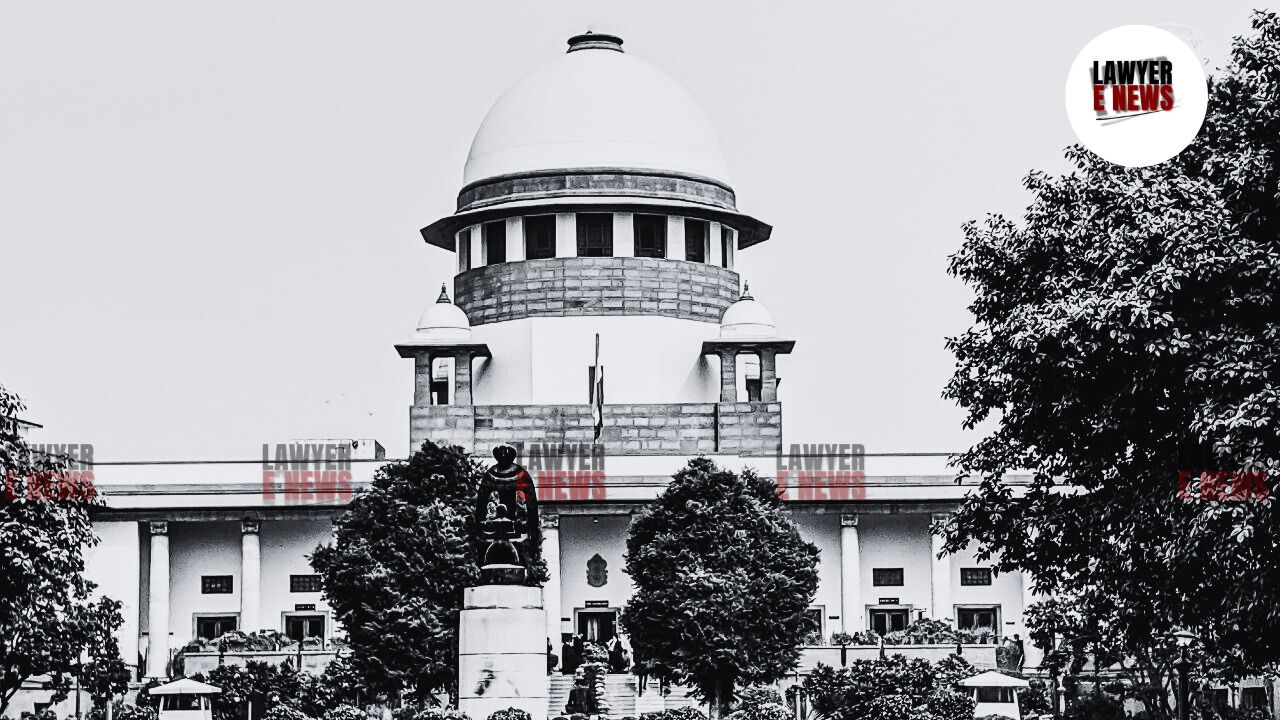-
by Admin
16 February 2026 1:47 PM



“No Direct Evidence Needed When Circumstantial Proof Is Overwhelming”: In a significant ruling Supreme Court of India upheld the dismissal of a government school teacher who had allegedly secured a transfer from Bangalore to Mumbai based on a forged order.
A Bench comprising Justice Abhay S. Oka and Justice Augustine George Masih dismissed the appeal filed by the teacher, concluding that there was no procedural violation that caused real prejudice and that misconduct was established on the basis of circumstantial evidence.
The Court rejected the appellant’s plea that she was victimized without proof, noting emphatically: “Mere technical breach of natural justice, without real prejudice, cannot undo a lawful disciplinary action.”
“Sole Beneficiary of a Forged Transfer Order Has to Explain the Benefit”
The case involved S. Janaki Iyer, a Hindi teacher appointed to Kendriya Vidyalaya, Bangalore, who was transferred to Mumbai in 1991 under an order purportedly signed by an official at KVS headquarters. However, that official, VK Jain, later denied signing the document.
Despite being provisionally allowed to join in Mumbai, a departmental inquiry was initiated after suspicions emerged that the transfer order was fake. The disciplinary proceedings spanned nearly nine years, culminating in her dismissal in November 2001, a decision upheld by the Central Administrative Tribunal, the Bombay High Court, and now the Supreme Court.
The appellant denied wrongdoing and argued that there was no direct evidence connecting her to the forged document. However, the Court observed:
“The appellant was the sole beneficiary of the fake transfer order. That circumstance, taken with the fact that the purported signatory denied his signature, is sufficient in a departmental inquiry governed by the standard of preponderance of probabilities.”
“Natural Justice Does Not Mean a Magical Incantation”
The core legal issue was whether the disciplinary proceedings were vitiated by violation of the principles of natural justice, due to alleged non-supply of documents, a vague chargesheet, and unjustified delay.
The Supreme Court held that there was no real prejudice to the appellant, and cited the landmark Constitution Bench ruling in ECIL v. B. Karunakar (1993) 4 SCC 727:
“Natural justice principles are not sacred words to be uttered mechanically… unless actual prejudice is shown, they do not nullify lawful proceedings.”
The Court elaborated:
“To stretch the doctrine of natural justice to an illogical and unwarranted extent would paradoxically undermine the very concept of justice it seeks to uphold.”
It further noted that the chargesheet was clear and specific, stating that she “managed to get herself transferred… under a fake order,” and that “a common person reading it would understand what misconduct is alleged.”
“Delay Alone Is Not Enough—Prejudice Must Be Shown”
The inquiry, which extended over nine years, was another ground on which the appellant challenged her dismissal. However, the Court held that delay is not by itself fatal:
“Inordinate or unexplained delay in inquiry can be grounds for interference only when accompanied by proven prejudice. That is absent here.”
The Court accepted the government’s explanation that the delay was due to the inquiry spanning multiple jurisdictions, involving witnesses and documents from various cities, and noted that the appellant was paid subsistence allowance throughout and was able to participate fully.
“Rule 15(2) Was Complied With—Appellant Had Opportunity to Respond”
The appellant had also argued that the disciplinary authority failed to properly communicate its disagreement with the findings of the Inquiry Officer, violating Rule 15(2) of the CCS (CCA) Rules, 1965.
This was firmly rejected by the Court:
“The inquiry report was shared with her, and reasons for disagreement were clearly communicated. Her response was duly considered. Rule 15(2) was fully complied with.”
The Court clarified that while the Inquiry Officer concluded that the transfer order was fake, the disciplinary authority inferred guilt from the exclusive benefit derived by the appellant from the forged order.
“Denial by Author of Transfer Order Cannot Be Brushed Aside”
Key evidence in the case came from VK Jain, the alleged signatory of the transfer order, who categorically denied having signed it. The Court found this testimony crucial:
“When the alleged author of a document disowns the signature and the document’s authenticity, and that denial stands unshaken in cross-examination, the document stands discredited.”
The Court noted that such denial, along with the fact that all other teachers named in the forged order were actually transferred by other genuine orders, established beyond doubt that the appellant had unduly benefited.
“Mala Fide Allegations Cannot Be Raised Without Pleadings or Proof”
Late in the proceedings, the appellant alleged that her transfer was manipulated to benefit another teacher, and that she was merely caught in a bureaucratic conspiracy.
The Supreme Court refused to entertain this claim:
“Allegations of mala fides must be specifically pleaded and the persons accused must be impleaded. That is not the case here. Such a plea cannot be raised orally for the first time in appeal.”
Procedural Fairness Was Followed, Misconduct Was Established
Dismissing the appeal, the Court concluded that:
“There has been no violation of any statutory rule, nor of the principles of natural justice. The transfer order dated 01.10.1991 was clearly fake, and the appellant was the sole beneficiary. The findings of misconduct are supported by the evidence.”
The Court’s final words reaffirmed the boundaries of judicial interference in service matters:
“Interference is not warranted unless findings are unsupported by evidence or procedural violations cause real injustice. Neither condition is met here.”
Accordingly, the appeal was dismissed without costs, putting to rest a disciplinary saga that spanned more than three decades.
Date of Decision: May 20, 2025
